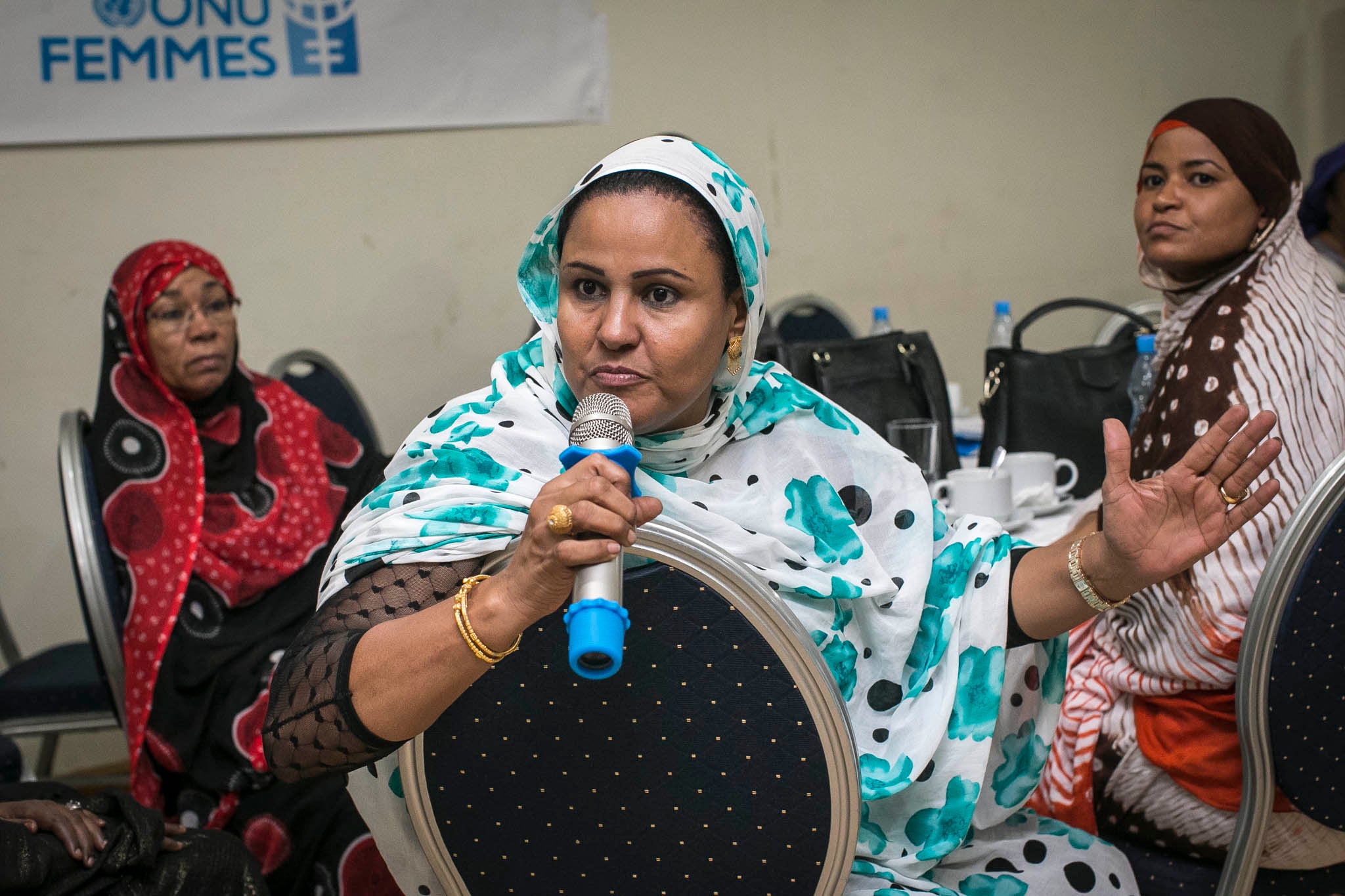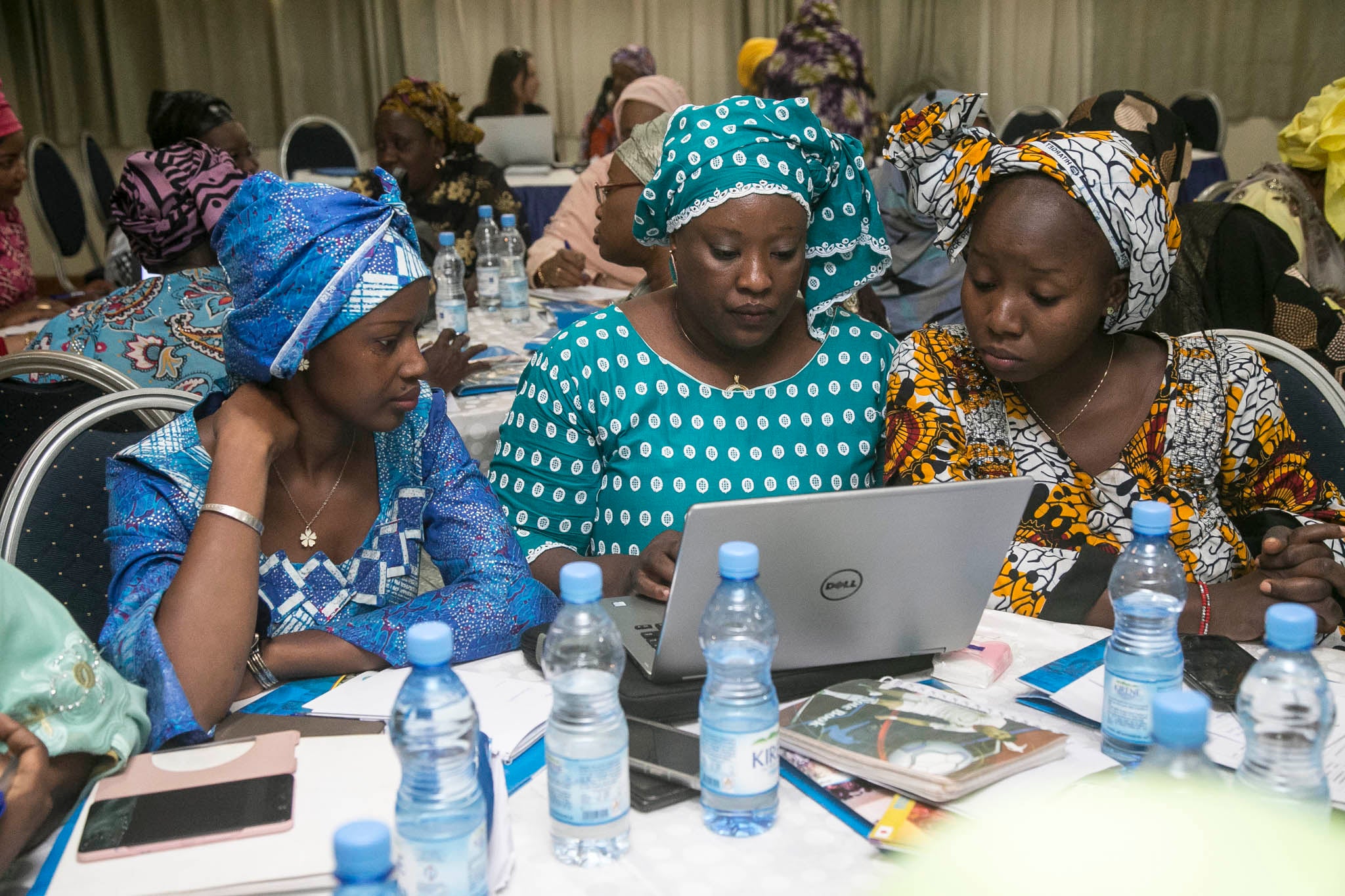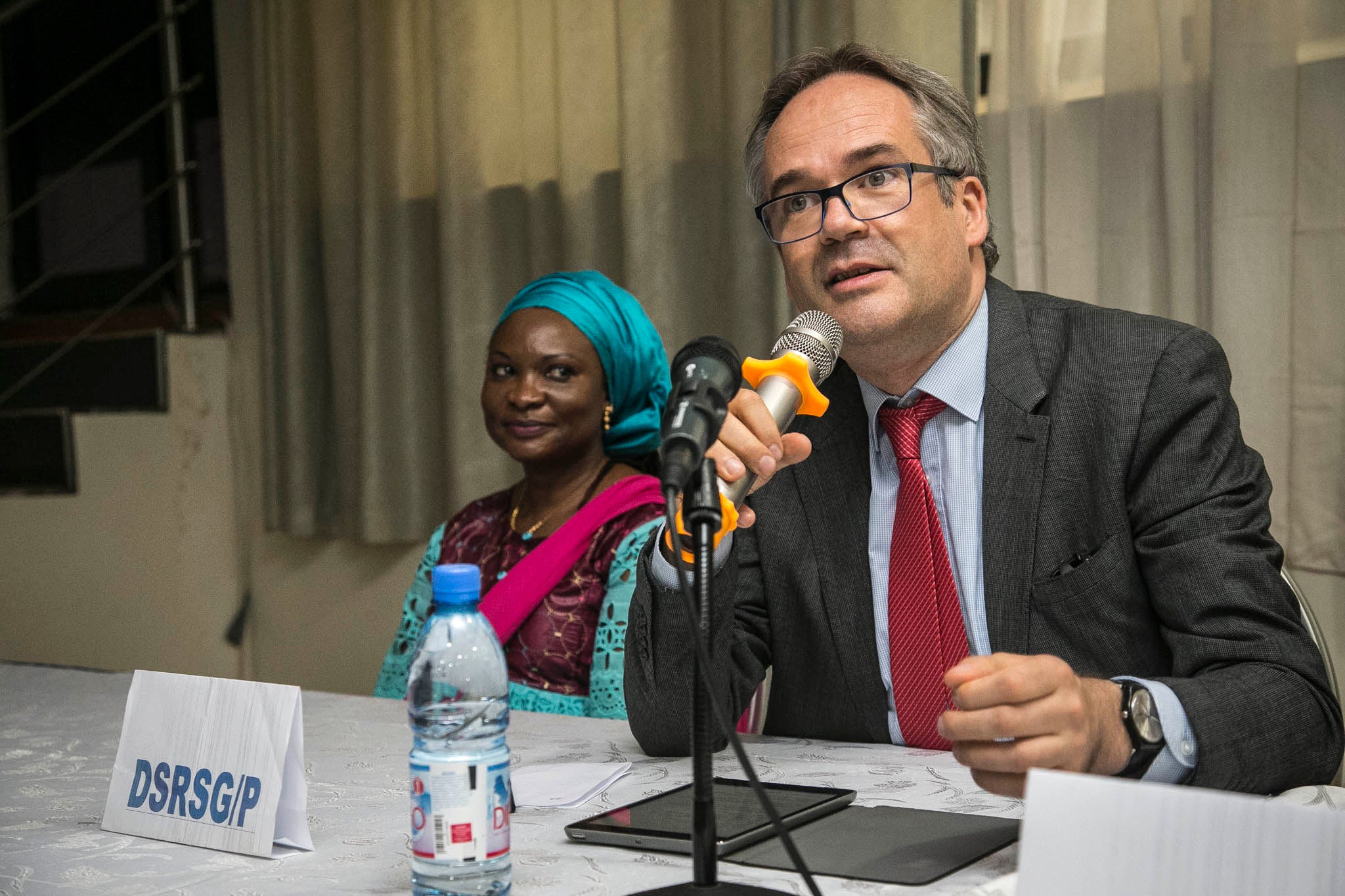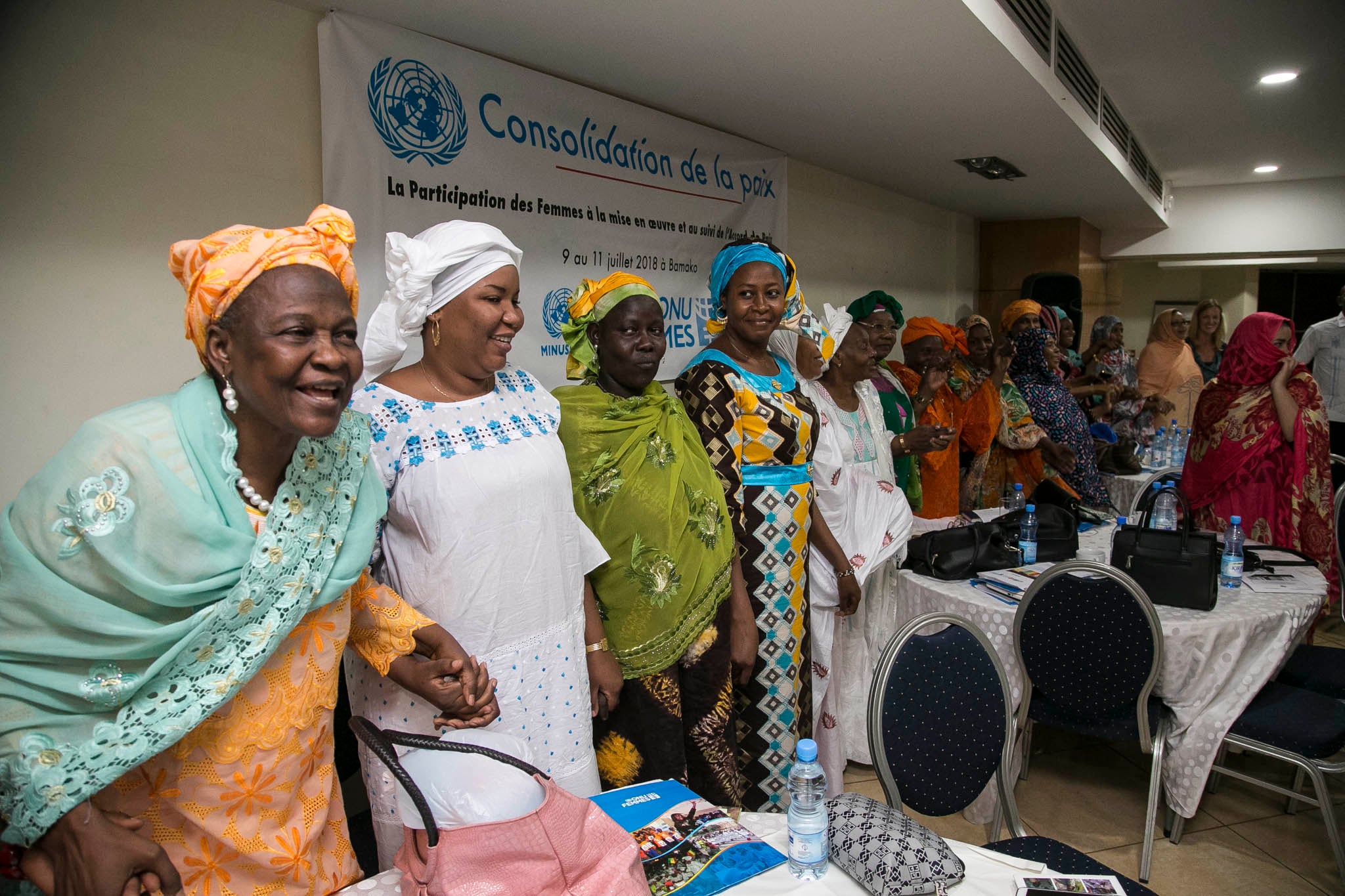Malian women call for urgent action to sustain peace and ensure women’s participation
Date:
Three years since the signing of the peace agreement, Malian women are impatient to see its provisions at work.
“We have discussed enough, it is now time to act,” said one woman at a recently held meeting in Bamako, which convened 40 women leaders from civil society, government and armed groups to find common ground and accelerate efforts to increase Malian women’s participation in the peace process.
The multidimensional security and political crisis with interlinked micro-conflicts in Mali have had devastating consequences for its population and particularly for women and girls, who have been largely displaced and remain in insecure living and safety conditions. Only 10 to 20 percent of women and girls who survived gender-based violence related to the conflict have access to protection and judicial assistance. Businesses with Malian art crafts, many of which have made a living for women in the north, have collapsed and jeopardized their livelihoods.

Since December 2015, Malian national law has stipulated a 30 per cent quota for women in all political functions and offices. However, in many important State institutions, meaningful representation of women remains a distant ideal; Mali’s highest committee overseeing the peace agreement is composed entirely of men.
During the 3-day meeting organized by UN Women and the UN Peacekeeping Mission in Mali, women leaders developed specific recommendations to strengthen women’s participation in the implementation of the 2015 peace agreement.
“The peace agreement has not been implemented in large parts, and our wishes have not been considered,” explained an anonymous activist. This meeting allowed us, as women from civil society, authorities and armed groups, to unify and raise our voices. We must use the upcoming elections to increase our influence.”

As part of a roadmap developed during the workshop, the women call for immediate talks with the signatories of the peace treaty to identify more ways and opportunities of inclusion and participation at all levels. The group also recommended to elaborate a gender strategy to the peace agreement aiming to include the needs of all women and men, boys and girls in the peace process. An independent women’s commission should be established to monitor the progress.
“We wish the legislations and policies for gender equality are respected, such as the UN Security Council resolution 1325 and the National Gender Policy,” added another participant. “Women should be equally represented in the commissions of the peace agreement. We need access to holistic support and justice for survivors of conflict-related violence and we want that women to be given opportunities to economic empowerment through education and professional training.”
Deputy Special Representative of the UN Secretary-General, Koen Davidse, highlighted, “Peace cannot be lasting without the leading role of women. The representation of women in the mechanisms of the peace agreement is a key element of our work, and I urge all involved parties to fruitfully explore both formal and informal ways for their inclusion.”

Jeronime Setcheme, acting Resident Representative at UN Women Mali, added that women have specific experiences and, therefore, specific security needs, which need to be included in formal peace and security processes. “Women’s contributions are crucial for peacebuilding. Not including them is a waste of talents, capacities and important perspectives. The unity between women from civil society, government and armed groups has a huge potential to push things forward,” she said.
As the meeting closed, the urgency was palpable in the room. “We, the women of Mali, want peace,” chanted the participants in unison.
An activist from Mopti said, “We cannot risk losing more time. Our next steps are crucial for all women in Mali.” She plans to disseminate information through television and other media, networking and outreach with women in communities, and monthly meetings with the highest monitoring committee for the peace agreement, along with sharing lists of women candidates with decision-makers to increase nomination of women into official positions.

As Malian women ramp up their advocacy, UN Women continues to support their efforts through the 2-year programme financed by the Peacebuilding Fund, from victims to peace actors: Strengthening Women's Participation in the Implementation of the Peace Agreement and the Improvement of Social Cohesion.